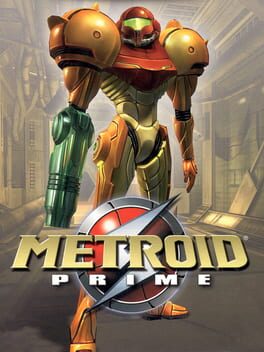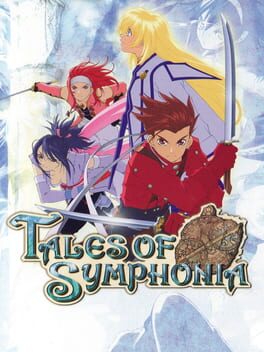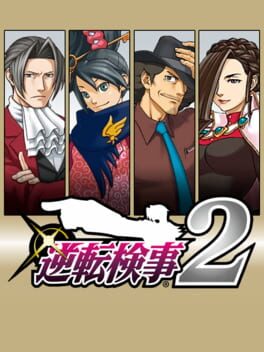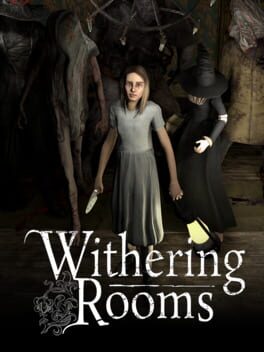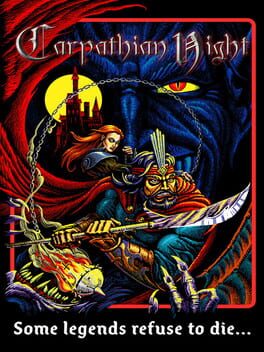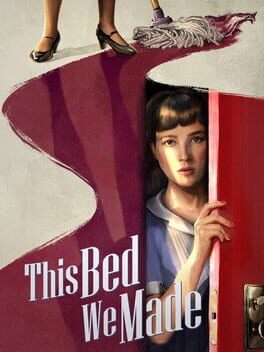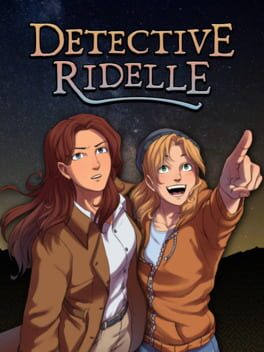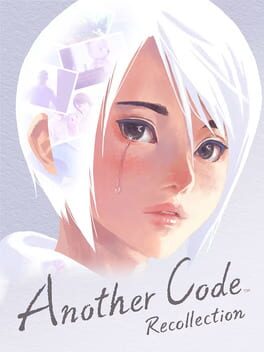Twilight_Shimmer
Bio
Some asshole that changes scores every 10 minutes.
Some asshole that changes scores every 10 minutes.
Badges

Donor
Liked 50+ reviews / lists

GOTY '23
Participated in the 2023 Game of the Year Event

2 Years of Service
Being part of the Backloggd community for 2 years

GOTY '22
Participated in the 2022 Game of the Year Event

Liked
Gained 10+ total review likes

Best Friends
Become mutual friends with at least 3 others

On Schedule
Journaled games once a day for a week straight

GOTY '21
Participated in the 2021 Game of the Year Event

Noticed
Gained 3+ followers

Elite Gamer
Played 500+ games

Gamer
Played 250+ games

N00b
Played 100+ games
Favorite Games
822
Total Games Played
020
Played in 2024
175
Games Backloggd
Recently Played See More
Recently Reviewed See More
The Another Code/Trace Memory games tell the tales of Ashley as she discovers the truth of her parents across two games, alongside a young boy in each of them who also needs to find the truth about something, with themes of the importance of memories, loss, facing some hard truths and acceptance wrapped around the turmoils and drama of a teenager. Both of the original games are pretty dear to my heart and the first one a pretty formative one during my early teenage years.
In terms of the story, the first game is "mostly" untouched, and the touches and flourishes in certain aspects also come with drawbacks, but they always feel unnecesary considering the clean execution of the original story, at best the change in the order of events maintain the overall tone of the original at worst it gets rid of some of the mystery and hampers the flow. The second game is heavily changed with elements regarding the main antagonist, cutting some incidental characters and considering another element I'll mention later, it cuts the Wii game by around 40% or so. I can sum up what the major changes make to this story as leaving them way less surprising in terms of their mystery elements, which obviously doesn't affect me as much as I played the original titles, but I do think about how less interesting some elements are going to be presented to a new player in this remake.
The mystery element is pretty neutered but the themes of the story are mostly left untouched, I find the engame of R a bit more on the ridiculous side compared to the original but they still hit the key moments well enough, lack of subtlety in some moments aside, leaving the narrative as the most positive aspect of the game.
Presentation then is a mixed bag for me. The soundtracks were pretty distinct in the originals when it came to the instrumentation and their intent because of the contrasting tones of each title, the first one with a more sad, lonely melancholic atmosphere, while the second having a more of a summer vacation vibe with an adequate use of the more mysterious and melancholic tunes when that was necessary, and a smart use of arrangements of tunes from the first game also when needed, something that is lost in this remake, R no longer saves Emotions until the endgame and is now the standard puzzle theme across both games, and the arrangement given to that track is really lacking considering how unique the track originally is. The arrangements of the first game feel more bouncy and their lack of simplicity and different instrumentation by comparison make a track like the Edward Mansion lose its vibe. R's soundtrack survives the atmosphere part but there are tracks that feel like they were cut in my memory doesn't fail, plus what I already mentioned of the lack of the original game's music more so towards the end that funnily enough was something that tied both games together really well and is missing in this collection that ties the games even more with how it recontextualized some of the story beats.
The artstyle is something that would work better if Nintendo dared to give the same amount of love to every remake they produced, the models look clean but the enviroments have a lot of low res quality to them that I can't even be charitable about it and attempt to call it watercolor, it looks pretty plain and honestly in some ways worse than the originals, those games didn't seem to have much budget behind them on that front but they did a lot more to look timeless than Recollection does, with good use of the pre rendered backgrounds and character portraits on the DS, and the side scrolling movement mixed with more detailed 3D areas when exploration was necessary on the Wii.
So the story retains the themes for the most part at least, despite the change in order, the background of certain narrative beats and the lack of mystery in certain areas, and the presentation is mostly fine if mostly inferior to the original games, if those were my only issues with it, I would still easily recommend experiencing these unique stories with the atmosphere that they bring, but that is only half of what I valued from these games. Gameplay is the other half, and that has been pretty much butchered on most fronts.
The Another Code games were not only great titles for their interesting stories and characters, they were adventure games heavily elevated by the inventive puzzle design where they used every possible feature one could think of from the DS hardware and the Wii remote, and no effort has been made to translate a fraction of that magic in Recollection. There aren't any clever uses of the Joy-Cons or the hardware itself anymore, it boils down to a lot of simple puzzles based on observation. Each game has one gyroscope based puzzle, the controls of it being really janky which is weird in a Nintendo game at this point, but it goes along well with how terribly janky the camera gets in this game, something that really helped my immersion.
In the original game Ashley would have a quiz at the end of each chapter, a very easy one mind you but one that went along well with the themes of the game, that is gone, a quirk of Ashley that I always liked was her moments of being absent minded, she will get lost in her thoughts before a character would call out her name, that is gone.
My heart sank when the water pollution test was pretty much reduced to aiming the camera at a location in R. My cynical take on cutting a good percentage the second game is that it wasn't about improving the pacing or something like that but rather an easy way to not have to put any effort in making more puzzles to replace everything from the original.
The first game had 2 endings, to get the good one a decent amount of extra effort had to be put in the exploration and puzzle solving to uncover the whole story behind the Edwards, I'm not sure if that is still a thing in the remake but I got the good ending right away and I don't think I did anything special to get there beyond just exploring normally.
Been pretty harsh with this, but it comes from a place of love for this series, I can't in good conscience recommend these as the first way to experience Another Code, but something to be played only after that and this remake isn't what I would call essential to get even after that.
As an aside I'm really worried about how a Kyle Hyde collection will turn out now and honestly I would just rather have a new IP instead of having to critique how that is going to fare against the masterpieces that are the originals.
Also the captain doesn't give me candy anymore, that is where I really started to get worried about the changes.
In terms of the story, the first game is "mostly" untouched, and the touches and flourishes in certain aspects also come with drawbacks, but they always feel unnecesary considering the clean execution of the original story, at best the change in the order of events maintain the overall tone of the original at worst it gets rid of some of the mystery and hampers the flow. The second game is heavily changed with elements regarding the main antagonist, cutting some incidental characters and considering another element I'll mention later, it cuts the Wii game by around 40% or so. I can sum up what the major changes make to this story as leaving them way less surprising in terms of their mystery elements, which obviously doesn't affect me as much as I played the original titles, but I do think about how less interesting some elements are going to be presented to a new player in this remake.
The mystery element is pretty neutered but the themes of the story are mostly left untouched, I find the engame of R a bit more on the ridiculous side compared to the original but they still hit the key moments well enough, lack of subtlety in some moments aside, leaving the narrative as the most positive aspect of the game.
Presentation then is a mixed bag for me. The soundtracks were pretty distinct in the originals when it came to the instrumentation and their intent because of the contrasting tones of each title, the first one with a more sad, lonely melancholic atmosphere, while the second having a more of a summer vacation vibe with an adequate use of the more mysterious and melancholic tunes when that was necessary, and a smart use of arrangements of tunes from the first game also when needed, something that is lost in this remake, R no longer saves Emotions until the endgame and is now the standard puzzle theme across both games, and the arrangement given to that track is really lacking considering how unique the track originally is. The arrangements of the first game feel more bouncy and their lack of simplicity and different instrumentation by comparison make a track like the Edward Mansion lose its vibe. R's soundtrack survives the atmosphere part but there are tracks that feel like they were cut in my memory doesn't fail, plus what I already mentioned of the lack of the original game's music more so towards the end that funnily enough was something that tied both games together really well and is missing in this collection that ties the games even more with how it recontextualized some of the story beats.
The artstyle is something that would work better if Nintendo dared to give the same amount of love to every remake they produced, the models look clean but the enviroments have a lot of low res quality to them that I can't even be charitable about it and attempt to call it watercolor, it looks pretty plain and honestly in some ways worse than the originals, those games didn't seem to have much budget behind them on that front but they did a lot more to look timeless than Recollection does, with good use of the pre rendered backgrounds and character portraits on the DS, and the side scrolling movement mixed with more detailed 3D areas when exploration was necessary on the Wii.
So the story retains the themes for the most part at least, despite the change in order, the background of certain narrative beats and the lack of mystery in certain areas, and the presentation is mostly fine if mostly inferior to the original games, if those were my only issues with it, I would still easily recommend experiencing these unique stories with the atmosphere that they bring, but that is only half of what I valued from these games. Gameplay is the other half, and that has been pretty much butchered on most fronts.
The Another Code games were not only great titles for their interesting stories and characters, they were adventure games heavily elevated by the inventive puzzle design where they used every possible feature one could think of from the DS hardware and the Wii remote, and no effort has been made to translate a fraction of that magic in Recollection. There aren't any clever uses of the Joy-Cons or the hardware itself anymore, it boils down to a lot of simple puzzles based on observation. Each game has one gyroscope based puzzle, the controls of it being really janky which is weird in a Nintendo game at this point, but it goes along well with how terribly janky the camera gets in this game, something that really helped my immersion.
In the original game Ashley would have a quiz at the end of each chapter, a very easy one mind you but one that went along well with the themes of the game, that is gone, a quirk of Ashley that I always liked was her moments of being absent minded, she will get lost in her thoughts before a character would call out her name, that is gone.
My heart sank when the water pollution test was pretty much reduced to aiming the camera at a location in R. My cynical take on cutting a good percentage the second game is that it wasn't about improving the pacing or something like that but rather an easy way to not have to put any effort in making more puzzles to replace everything from the original.
The first game had 2 endings, to get the good one a decent amount of extra effort had to be put in the exploration and puzzle solving to uncover the whole story behind the Edwards, I'm not sure if that is still a thing in the remake but I got the good ending right away and I don't think I did anything special to get there beyond just exploring normally.
Been pretty harsh with this, but it comes from a place of love for this series, I can't in good conscience recommend these as the first way to experience Another Code, but something to be played only after that and this remake isn't what I would call essential to get even after that.
As an aside I'm really worried about how a Kyle Hyde collection will turn out now and honestly I would just rather have a new IP instead of having to critique how that is going to fare against the masterpieces that are the originals.
Also the captain doesn't give me candy anymore, that is where I really started to get worried about the changes.
You have a heart of gold, don't let them take it from you.
Demon Souls (I never acknowledge the ‘s when saying the name out loud), is a game that ranges from a 7 to 10/10 moments back and forth, it makes sense given how experimental it is, successes, failures, but always memorable in some shape or form.
The world of Boletaria is pretty coo with all the ways that it pulls you into that world, the level layouts, how each area has its own type of natural shortcut, minimalist sound design, great art direction, the enemies and items you can find in each of them, gives each area a great sense of identity.
Something I really liked about the level design comes from the structure of the game, from the Nexus you can go to any of the 5 main areas, and while they are interconnected and could be done in a single run (besides the Arch demon gate to enter Boletaria-3), every boss fight acts as a checkpoint that you can warp to, so is kind of like a level separation within the connected world; this means that every “level” can be pretty different and throw at you different set pieces and the like, it makes each portion within the world of Demon Souls feel pretty unique, which brings its hits and misses, but it adds to that level of memorability and janky-ness that really ties Demon Souls together.
Boletaria-1 is pretty big and circles back to its start for the boss fight, 2 is a straight line to the boss, 3 is back to a bigger level with a shortcut, and 4 is basically a spiral upwards to its Arch Demon fight, just to exemplify the changes in design within a single main area.
The not winner part of the world of Demon Souls is Stonefang Tunnel, I can live without it, the atmosphere can be pretty boring, the boss fights are not really good (Armor Spider is pretty spammy and ends up feeling like something you have to brute force, Flamelurker is fine in theory but I found his speed and patterns don't really mesh well with the combat of Demon Souls, and the Arch Demon could have been more interesting, could have done more with the idea), and Stonefang-2 in particular is pretty bad both going the normal way and using the shortcut for the boss fight.
The opposite ends are Latria and Shrine of Storms, kino af areas in atmosphere and design, can put both in top areas in gaming.
Boss fight are on the whole pretty interesting, very few are essentialy the at this point design meme of dodges and hits that indies and the more recent From Soft games seem to push, most of them are essentially some form of puzzle, they make for a memorable experience, in terms of challenge ranging from easy, a relatively mild challenge and rather difficult, I appreciate them considering I'm not really fond of the combat in the game, I'm more into it for the exploration and adventure feel. The Arch Demons more than anything being the great example of unique bosses, and despite my issues with the combat, Boletaria's Arch Demon is a really, really good fight.
The game can be quite difficult in its actual levels tho, but almost never unfair, and the format of choosing which level to do past the tutorial is a way for the game to help you as long as you pay attention and are willing to explore, very often you'll find useful NPCs across the starting levels of each area, and equipment that will make your life much easier for other areas, is a nicely designed balance of maximizing that sense of adventure and exploration.
In part I feel is pretty unnecessary for me to say more, it is a pretty well known game at this point, and other people have gone into much more detail and with better writing skills about the game and all its components, I don't really have much to add but I at least wanted to mention the stuff that stood out for me after finally experiencing this game, I'm glad I played it, that I finally went through with it till the end, because it gave me something very flawed, yet pretty special. Also I can finally see how much they messed up in the remake, they fucked you up Demon Souls.
Demon Souls (I never acknowledge the ‘s when saying the name out loud), is a game that ranges from a 7 to 10/10 moments back and forth, it makes sense given how experimental it is, successes, failures, but always memorable in some shape or form.
The world of Boletaria is pretty coo with all the ways that it pulls you into that world, the level layouts, how each area has its own type of natural shortcut, minimalist sound design, great art direction, the enemies and items you can find in each of them, gives each area a great sense of identity.
Something I really liked about the level design comes from the structure of the game, from the Nexus you can go to any of the 5 main areas, and while they are interconnected and could be done in a single run (besides the Arch demon gate to enter Boletaria-3), every boss fight acts as a checkpoint that you can warp to, so is kind of like a level separation within the connected world; this means that every “level” can be pretty different and throw at you different set pieces and the like, it makes each portion within the world of Demon Souls feel pretty unique, which brings its hits and misses, but it adds to that level of memorability and janky-ness that really ties Demon Souls together.
Boletaria-1 is pretty big and circles back to its start for the boss fight, 2 is a straight line to the boss, 3 is back to a bigger level with a shortcut, and 4 is basically a spiral upwards to its Arch Demon fight, just to exemplify the changes in design within a single main area.
The not winner part of the world of Demon Souls is Stonefang Tunnel, I can live without it, the atmosphere can be pretty boring, the boss fights are not really good (Armor Spider is pretty spammy and ends up feeling like something you have to brute force, Flamelurker is fine in theory but I found his speed and patterns don't really mesh well with the combat of Demon Souls, and the Arch Demon could have been more interesting, could have done more with the idea), and Stonefang-2 in particular is pretty bad both going the normal way and using the shortcut for the boss fight.
The opposite ends are Latria and Shrine of Storms, kino af areas in atmosphere and design, can put both in top areas in gaming.
Boss fight are on the whole pretty interesting, very few are essentialy the at this point design meme of dodges and hits that indies and the more recent From Soft games seem to push, most of them are essentially some form of puzzle, they make for a memorable experience, in terms of challenge ranging from easy, a relatively mild challenge and rather difficult, I appreciate them considering I'm not really fond of the combat in the game, I'm more into it for the exploration and adventure feel. The Arch Demons more than anything being the great example of unique bosses, and despite my issues with the combat, Boletaria's Arch Demon is a really, really good fight.
The game can be quite difficult in its actual levels tho, but almost never unfair, and the format of choosing which level to do past the tutorial is a way for the game to help you as long as you pay attention and are willing to explore, very often you'll find useful NPCs across the starting levels of each area, and equipment that will make your life much easier for other areas, is a nicely designed balance of maximizing that sense of adventure and exploration.
In part I feel is pretty unnecessary for me to say more, it is a pretty well known game at this point, and other people have gone into much more detail and with better writing skills about the game and all its components, I don't really have much to add but I at least wanted to mention the stuff that stood out for me after finally experiencing this game, I'm glad I played it, that I finally went through with it till the end, because it gave me something very flawed, yet pretty special. Also I can finally see how much they messed up in the remake, they fucked you up Demon Souls.
First of all the gameplay, I think the main question is how much does conventional rhythm mechanics add to a character action moveset, given the complexity of movesets like Dante's or Bayonetta's there is always some element of rhythm already embedded to these characters, dogde timing, offset combos, pause combos, parry timing, etc. all that is about a "rhyhtm" paced by the player and the enemy one interacts with. So in Hi-Fi Rush, it should add, in theory, more difficulty to the execution of these combos, but it doesn't, I would say that for at least 80 to maybe 90% of it, you can get by, by just mashing through it, undermining that aspect of the game for most of its run. I guess the biggest downfall of the idea from a mechanical stand point, is that it is pretty accessible for people that don't have much rhythm, but it also means that its main thing doesn't really push more in terms of execution compared to other action games.
The fundamental game feel is solid at least, it feels fairly satisfying to pull off combos in the game, but there is a lot of details that make the game less enjoyable to me. There is no form of lock on that I could find, so you either let the auto camera turned on, or you turn it off and have to move it to an adequate enough location every encounter; since there is no proper lock on, the game will soft lock itself to a nearby enemy, and you'll have to move around to be able to soft lock into another, it makes it a lot more finicky than it really needs to be. You can call companions in the middle of the fight to help you, they are on a cooldown, the issue is that some enemies can't be really damaged until you call the correct companion, there are some fights where all the enemies would be ones you can't damage from the get go, so is a fight where I just have to move around, do the ability, wait for it to charge again and then do it again, is not really that engaging or challenging, is a time waster; there are strong enemies that will always have a forced QTE move before you are able to defeat them, it wasn't good in Metroid Dread and is not good here either.
While Chai's speed is fine during combat, he feels needlessly slow outside of it, all you can really do is time dashes, the jumping is not the most ideal one, and there is a decent amount of platforming to do, is not hard, but it doesn't really feels good to play either in these segments either.
Level design is fairly simple and straight forward, some nooks and crannies here and there for extra items and upgrades, there are locked doors that aren't accessible until you get the right companion, don't know how to feel about that.
The presentation, at a surface level, is great, pretty colorful, a nice animated look to it, some good transitions between 2D and 3D cutscenes (idk if completely necessary, the 3D models have more polish than the 2D cutscenes, and those 3D models look 2D-ish enough), it commits to the rhythm aspect here by making as many elements as possible bop alongside the music, but honestly, is rather repetitive to look at, spending most of the time at samey looking factory areas, there are a couple of stand outs as contrast, but for the most part it has a rather uninspired setting, and kind of a sterile vibe to it.
I also didn't vibe with most of the music, I think that is probably a big enough factor in terms of how much you get out of the game, and sadly, not my thing. Guess the highlights would be the licensed stuff, and a couple of the original compositions, besides that, mostly forgettable.
And then there is the story, I'm a weirdo that cares about that a decent amount in this genre, and everything is kind of flat, there is not much in the form of over the top scenarios fitting for a character action game; besides the banter between Chai and Peppermint, which is a pretty basic trope but is done well, every other character feels pretty paper thin, one of them is just a Jojo reference, and while I love Jojo, is not really enough to make an entire character; there isn't really much in the form of themes or tangible development, it doesn't even really feel like it has as much fun with itself as it could, making for very simplistic humor, the kind of jokes that won't hurt me, but also that I won't chuckle at; there is a couple of non boss fights, but I don't think there is enough of a roster of proper fights to pull some No More Heroes stuff in this game. It at least gets building up the bosses across their levels well enough. I see the sentiment that the game is like a playable version of an animated show, and yea, I get that vibe, but it comes off as one of those very simplistic cartoons that I don't get much out of, one that I won't remember much if anything as time goes by.
The game also feels too long, for the simplicity of the game, it should be more like a DMC1, rather than a Bayonetta or modern DMC game, it suffers from a similar issue I had with Travis Strikes Again, you could shave off one or two segments from each level and the pacing would be very much improved, plus maybe a rework of most of the middle game.
And that is about it, I'll say that I don't regret playing through it, but I was also hoping/expecting to like it a lot more, and not being able to makes me sad, because it really appeals a lot to me on a surface level.
The fundamental game feel is solid at least, it feels fairly satisfying to pull off combos in the game, but there is a lot of details that make the game less enjoyable to me. There is no form of lock on that I could find, so you either let the auto camera turned on, or you turn it off and have to move it to an adequate enough location every encounter; since there is no proper lock on, the game will soft lock itself to a nearby enemy, and you'll have to move around to be able to soft lock into another, it makes it a lot more finicky than it really needs to be. You can call companions in the middle of the fight to help you, they are on a cooldown, the issue is that some enemies can't be really damaged until you call the correct companion, there are some fights where all the enemies would be ones you can't damage from the get go, so is a fight where I just have to move around, do the ability, wait for it to charge again and then do it again, is not really that engaging or challenging, is a time waster; there are strong enemies that will always have a forced QTE move before you are able to defeat them, it wasn't good in Metroid Dread and is not good here either.
While Chai's speed is fine during combat, he feels needlessly slow outside of it, all you can really do is time dashes, the jumping is not the most ideal one, and there is a decent amount of platforming to do, is not hard, but it doesn't really feels good to play either in these segments either.
Level design is fairly simple and straight forward, some nooks and crannies here and there for extra items and upgrades, there are locked doors that aren't accessible until you get the right companion, don't know how to feel about that.
The presentation, at a surface level, is great, pretty colorful, a nice animated look to it, some good transitions between 2D and 3D cutscenes (idk if completely necessary, the 3D models have more polish than the 2D cutscenes, and those 3D models look 2D-ish enough), it commits to the rhythm aspect here by making as many elements as possible bop alongside the music, but honestly, is rather repetitive to look at, spending most of the time at samey looking factory areas, there are a couple of stand outs as contrast, but for the most part it has a rather uninspired setting, and kind of a sterile vibe to it.
I also didn't vibe with most of the music, I think that is probably a big enough factor in terms of how much you get out of the game, and sadly, not my thing. Guess the highlights would be the licensed stuff, and a couple of the original compositions, besides that, mostly forgettable.
And then there is the story, I'm a weirdo that cares about that a decent amount in this genre, and everything is kind of flat, there is not much in the form of over the top scenarios fitting for a character action game; besides the banter between Chai and Peppermint, which is a pretty basic trope but is done well, every other character feels pretty paper thin, one of them is just a Jojo reference, and while I love Jojo, is not really enough to make an entire character; there isn't really much in the form of themes or tangible development, it doesn't even really feel like it has as much fun with itself as it could, making for very simplistic humor, the kind of jokes that won't hurt me, but also that I won't chuckle at; there is a couple of non boss fights, but I don't think there is enough of a roster of proper fights to pull some No More Heroes stuff in this game. It at least gets building up the bosses across their levels well enough. I see the sentiment that the game is like a playable version of an animated show, and yea, I get that vibe, but it comes off as one of those very simplistic cartoons that I don't get much out of, one that I won't remember much if anything as time goes by.
The game also feels too long, for the simplicity of the game, it should be more like a DMC1, rather than a Bayonetta or modern DMC game, it suffers from a similar issue I had with Travis Strikes Again, you could shave off one or two segments from each level and the pacing would be very much improved, plus maybe a rework of most of the middle game.
And that is about it, I'll say that I don't regret playing through it, but I was also hoping/expecting to like it a lot more, and not being able to makes me sad, because it really appeals a lot to me on a surface level.
